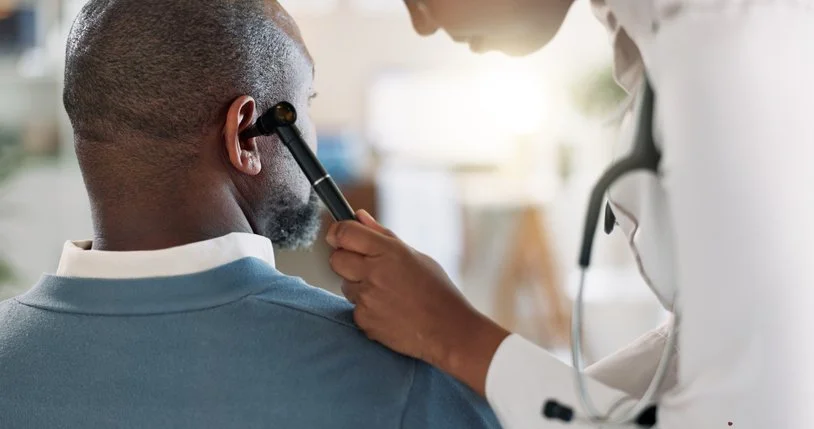Understanding Tinnitus: Causes, Types, and Treatment Options
Tinnitus, often characterized as a ringing, buzzing, or humming sensation in the ears, is a prevalent auditory condition without an external sound source. I have had it for years. According to the National Institute on Deafness and Other Communication Disorders (NIDCD) (What Is Tinnitus? — Causes and Treatment | NIDCD), tinnitus affects 10 to 25% of adults, including me. Some surveys suggest that up to 20% of U.S. adults have experienced it for at least five minutes. This condition, while not a disease itself, is typically a symptom of underlying issues, such as hearing loss or ear infections. Although there is no definitive cure, various management strategies can mitigate its impact, making it a focus of both medical research and patient care.
Causes of Tinnitus
The etiology of tinnitus is multifaceted, with research suggesting hearing loss as the most common cause, affecting about 90% of cases with hearing loss, as noted by Dr. Gayla Poling from the Mayo Clinic (Tinnitus - Symptoms and causes - Mayo Clinic). This is often due to damaged hair cells in the inner ear leaking random electrical impulses perceived as sound. Other common causes include ear infections or canal blockages from earwax, which alter ear pressure, and head or neck injuries impacting the inner ear or brain function, typically causing unilateral tinnitus.
Medications are another significant factor, with drugs like NSAIDs, certain antibiotics, cancer medications, diuretics, antimalarials, and antidepressants listed as potential triggers, often resolving upon discontinuation. Less frequent causes include Meniere’s disease, possibly due to abnormal inner ear fluid pressure, and Eustachian tube dysfunction, leading to a feeling of fullness. Structural changes like otosclerosis, stiffening of middle ear bones, and TMJ disorders are also implicated. Rare causes involve tumors like acoustic neuromas and blood vessel disorders such as atherosclerosis or high blood pressure, particularly linked to pulsatile tinnitus.
Risk factors include prolonged loud noise exposure, common in occupations like construction, dentistry, or music, aging with declining nerve fibers, and lifestyle factors like smoking or excessive alcohol use. The Mayo Clinic also notes conditions like obesity, cardiovascular issues, and a history of arthritis or head injury as increasing risk, highlighting the complexity of tinnitus causation.
Types of Tinnitus
Tinnitus is primarily classified into subjective and objective types, with subjective being the most common, accounting for approximately 99% of cases, as per Miracle-Ear (Types of Tinnitus: Subjective and Objective | Miracle-Ear). Subjective tinnitus, only audible to the affected individual, is often linked to auditory system damage. Sounds can vary from ringing to roaring and can be constant or intermittent. It’s frequently associated with hearing loss from aging or noise exposure.
Objective tinnitus, rare and less than 1% of cases, can be heard by others, typically through a stethoscope, and is often due to mechanical or vascular issues near the ear, such as muscle spasms or blood vessel abnormalities. Pulsatile tinnitus, a subtype, is rhythmic and syncs with the heartbeat, often linked to vascular conditions, as noted by NYU Langone Health (Types of Tinnitus | NYU Langone Health). There’s also somatic tinnitus, where body movements like jaw clenching can modulate the sound, suggesting a connection between auditory and somatic systems, as mentioned in a PMC article (Tinnitus: Characteristics, Causes, Mechanisms, and Treatments - PMC).
Treatment Options
Given the symptomatic nature of tinnitus, treatment focuses on management, with approaches varying by underlying cause and symptom severity. The NIDCD outlines several strategies, starting with addressing the cause, such as removing earwax or treating infections, which can alleviate symptoms (What Is Tinnitus? — Causes and Treatment | NIDCD). For cases without a curable cause, sound therapies are prominent, using devices like tabletop sound generators emitting pleasant sounds (e.g., waves, rain) or hearing aids that amplify external noises, making tinnitus less noticeable.
Behavioral therapies are crucial, with tinnitus retraining therapy (TRT) combining counseling and sound therapy to reclassify tinnitus as neutral, and cognitive behavioral therapy (CBT) addressing negative thought patterns to reduce distress, as detailed by the Mayo Clinic (Tinnitus - Diagnosis and treatment - Mayo Clinic). Medications, while not curing tinnitus, may include antidepressants or anti-anxiety drugs for mood and sleep issues, though no specific tinnitus drugs exist, and supplements like ginkgo biloba lack proven efficacy.
Lifestyle adjustments are recommended, such as using hearing protection, limiting caffeine and nicotine, and managing stress through relaxation or exercise. Some try alternative therapies like acupuncture or melatonin, though evidence is limited, as noted by Harvard Health (Tinnitus: Ringing in the ears and what to do about it - Harvard Health). Ongoing research, as mentioned by NIDCD, explores brain stimulation (e.g., transcranial magnetic stimulation), genetic factors, and personalized treatments using smartphone apps and brain imaging, indicating a dynamic field of study.
Conclusion and Practical Advice
Tinnitus presents a complex challenge with diverse causes, types, and management options. While it can significantly impact the quality of life, understanding its nature and available treatments can empower individuals. The Mayo Clinic advises consulting healthcare professionals for diagnosis and tailored treatment plans, especially given the potential for underlying conditions (Tinnitus - Diagnosis and treatment - Mayo Clinic). Support groups, both in-person and online, can also provide coping strategies, as suggested by Harvard Health, emphasizing a holistic approach to living with tinnitus.
Table: Summary of Tinnitus Causes and Treatments
Sources:
What Is Tinnitus? — Causes and Treatment | NIDCD: https://www.nidcd.nih.gov/health/tinnitus
Tinnitus - Symptoms and causes - Mayo Clinic: https://www.mayoclinic.org/diseases-conditions/tinnitus/symptoms-causes/syc-20350156
Tinnitus - Diagnosis and treatment - Mayo Clinic: https://www.mayoclinic.org/diseases-conditions/tinnitus/diagnosis-treatment/drc-20350162
Tinnitus: Characteristics, Causes, Mechanisms, and Treatments - PMC: https://pmc.ncbi.nlm.nih.gov/articles/PMC2686891/
Types of Tinnitus | NYU Langone Health: https://nyulangone.org/conditions/tinnitus/types
Types of Tinnitus: Subjective and Objective | Miracle-Ear: https://www.miracle-ear.com/hearing-diseases/tinnitus-ringing-ears/types-of-tinnitus
Tinnitus: Ringing in the ears and what to do about it - Harvard Health: https://www.health.harvard.edu/newsletter_article/tinnitus-ringing-in-the-ears-and-what-to-do-about-it



